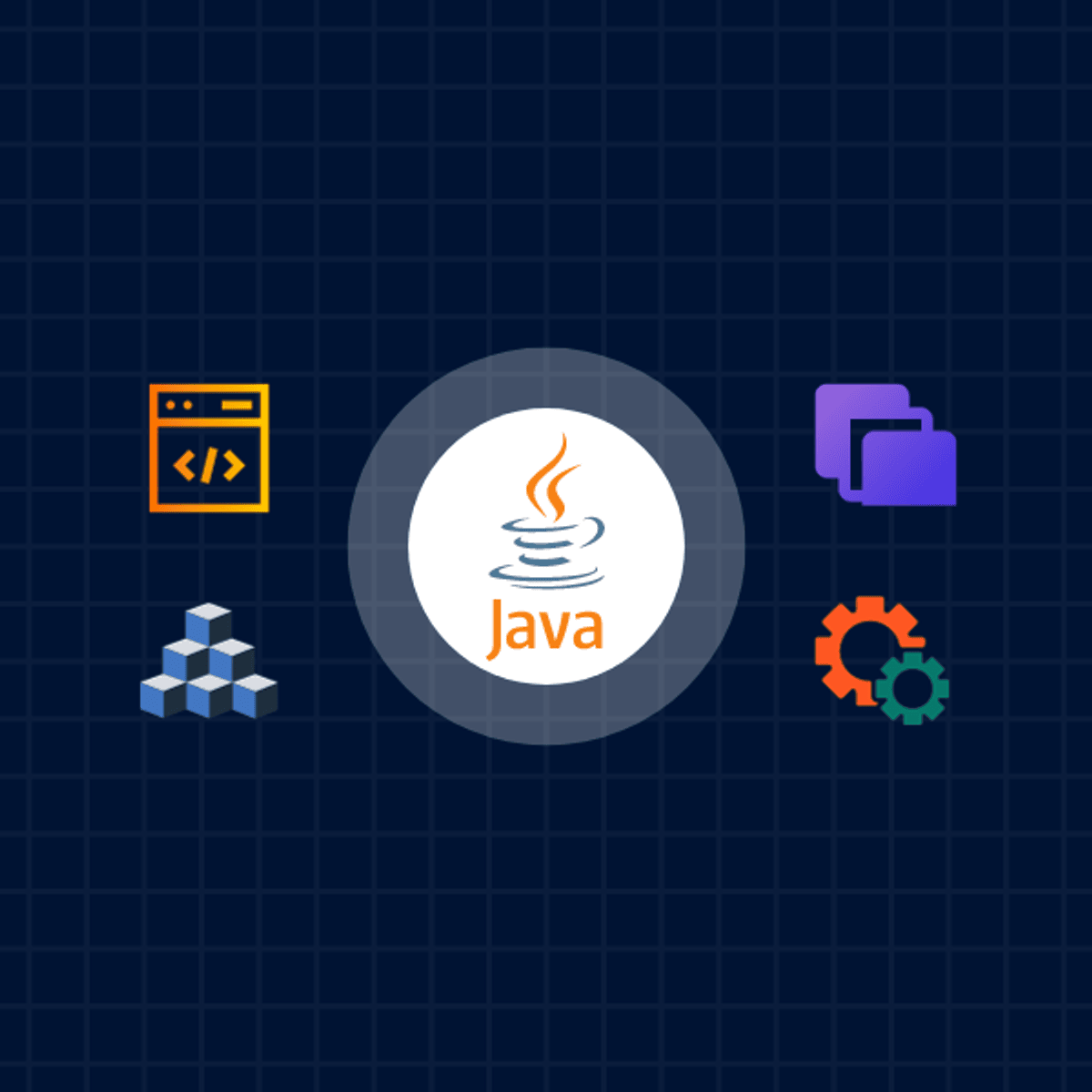Backend Developer
Backend Developer: Building the Engine of the Digital World
Backend development forms the invisible backbone of the websites and applications we use daily. It encompasses the server-side logic, databases, and Application Programming Interfaces (APIs) that power the user-facing frontend. Think of it as the engine of a car or the complex systems running behind the scenes in a theater – essential for the show, but hidden from the audience.
Working as a backend developer involves designing, building, and maintaining these complex systems. It’s a field that requires logical thinking, problem-solving skills, and a deep understanding of how software components interact. If you enjoy dissecting problems, working with data, and building the foundations that make digital experiences possible, a career in backend development could be a rewarding path.
Introduction to Backend Development
What is Backend Development?
Backend development refers to the work that happens behind the scenes of a software application. While the frontend deals with what users see and interact with (like buttons, menus, and text), the backend handles everything else. This includes managing data, processing user requests, and ensuring the application runs smoothly and securely.
A backend developer is responsible for the server-side of an application. They write the code that communicates between the database and the browser or mobile app. Their work ensures that when you log into a website, save information, or make a purchase, the correct data is stored, retrieved, and processed efficiently.
Essentially, backend systems are the core logic controllers. They manage user authentication, process data, execute business rules, and serve information to the frontend. Without a robust backend, even the most beautifully designed frontend application would be non-functional.
Backend vs. Frontend vs. Full-Stack
Software development roles are often categorized based on the part of the application they focus on. Backend developers, as discussed, handle the server, database, and application logic. Frontend developers focus on the client-side – the user interface (UI) and user experience (UX) that people directly interact with in their browser or app.
Frontend developers use languages like HTML, CSS, and JavaScript (often with frameworks like React, Angular, or Vue.js) to create visually appealing and interactive interfaces. They work closely with backend developers to ensure data flows correctly between the user interface and the server.
A full-stack developer possesses skills in both frontend and backend development. They can work on all layers of an application, from the database to the user interface. While versatile, specialization in either frontend or backend often allows for deeper expertise in specific areas. You can explore related roles like Web Developer or Full-Stack Developer on OpenCourser.
Why Backend Matters
The backend is crucial because it handles the core functionality and data management of any significant application. It processes complex business logic, ensures data security and integrity, and enables scalability to handle growing user numbers and data volumes. Think about online banking, social media platforms, or e-commerce sites – their reliability hinges on powerful backend systems.
Backend systems manage user accounts, process payments securely, store vast amounts of information, and deliver personalized content. They power the APIs that allow different software systems to communicate, enabling the interconnected digital ecosystem we rely on.
Furthermore, performance and scalability are primarily backend concerns. As applications grow, the backend must be designed to handle increased load efficiently. A well-architected backend ensures a smooth user experience even under heavy traffic, making it indispensable for successful digital products.
Key Responsibilities of a Backend Developer
Server-Side Architecture Design and Maintenance
A core responsibility of backend developers is designing the architecture of the server-side application. This involves making crucial decisions about the structure, technologies, and patterns used to build the system's logic. The goal is to create an architecture that is scalable, reliable, maintainable, and performs well under expected loads.
Developers choose appropriate programming languages, frameworks, and databases based on project requirements. They design how different components of the system will interact, often employing architectural patterns like microservices or monolithic designs depending on the context. Microservices, for instance, break down large applications into smaller, independent services.
Maintenance is also key. Backend developers continuously monitor system performance, update components, fix bugs, and refactor code to improve efficiency and adapt to new requirements. They ensure the server infrastructure remains healthy and capable of supporting the application.
Database Management and Optimization
Backend developers are heavily involved in managing the application's data. This starts with designing the database schema – the blueprint for how data is organized and stored. Whether using SQL or NoSQL databases, a well-designed schema is essential for data integrity and efficient retrieval.
They write and optimize database queries to fetch and manipulate data. This requires proficiency in query languages like SQL or specific NoSQL query methods. Optimization techniques, such as adding indexes, tuning query performance, and managing database connections, are vital for ensuring the application responds quickly.
Ensuring data consistency and integrity is another critical task. Developers implement validation rules and constraints within the database or application logic to prevent bad data from entering the system. They also manage database migrations when the schema needs to change over time.
API Development and Integration
Application Programming Interfaces (APIs) are the communication bridges between different software components. Backend developers design, build, and maintain APIs that allow the frontend (web or mobile app) to interact with the backend server. These APIs define how data can be requested and manipulated.
Common API styles include REST (Representational State Transfer) and GraphQL. Developers define API endpoints, request/response formats (often using JSON), and implement the logic to handle incoming requests. Clear API documentation is crucial for frontend developers and other API consumers.
These courses cover essential API development concepts, including building RESTful services with various popular frameworks.
Backend developers also frequently integrate third-party APIs into their applications. This could involve connecting to payment gateways (like Stripe), social media platforms, mapping services, or other external systems to extend the application's functionality.
Security and Data Protection
Security is paramount in backend development. Developers are responsible for implementing measures to protect the application and its data from unauthorized access and malicious attacks. This includes handling user authentication (verifying identity) and authorization (controlling access permissions).
Common security practices involve validating user input to prevent injection attacks (like SQL injection), encrypting sensitive data (like passwords and personal information), and implementing secure communication protocols (like HTTPS). They must stay updated on emerging security threats and vulnerabilities.
Data protection regulations, such as the General Data Protection Regulation (GDPR) in Europe or the California Consumer Privacy Act (CCPA), impose strict requirements on handling user data. Backend developers must ensure their systems comply with these regulations, implementing features for data consent, access, and deletion.
Collaboration and DevOps
Backend development is rarely a solo endeavor. Developers work closely with frontend developers, DevOps engineers, Quality Assurance (QA) testers, product managers, and designers. Effective communication and collaboration skills are essential for building successful products.
Version control systems, particularly Git, are fundamental tools for managing code changes and collaborating within a team. Backend developers use Git for tracking revisions, merging code from different team members, and maintaining code history.
Understanding DevOps principles and practices is increasingly important. This includes familiarity with Continuous Integration and Continuous Deployment (CI/CD) pipelines, which automate the process of building, testing, and deploying code changes. This collaboration ensures smoother and faster software delivery cycles.
Core Skills and Technologies
Essential Programming Languages
Backend developers utilize a variety of programming languages, each with its own strengths and ecosystems. Popular choices include Python, known for its readability and frameworks like Django, Flask, and FastAPI; Java, a robust language widely used in enterprise applications with the Spring framework; and Node.js, which allows JavaScript to be used on the server-side, often with frameworks like Express or NestJS.
Other significant languages are Go (Golang), favored for its performance and concurrency features; Ruby, known for the productive Rails framework; and C# (.NET), a versatile language from Microsoft popular for building Windows applications and web services. The choice often depends on project needs, team expertise, and performance requirements.
These courses offer introductions and deeper dives into key backend languages and frameworks like Node.js, Go, and Python's FastAPI.
Database Expertise (SQL vs. NoSQL)
A strong understanding of databases is fundamental for backend developers. This includes knowing how to work with both relational databases (SQL) and non-relational databases (NoSQL). Relational databases like PostgreSQL and MySQL organize data into tables with predefined schemas and use SQL for querying.
NoSQL databases, such as MongoDB (document database), Redis (key-value store), or Cassandra (wide-column store), offer more flexible data models and often excel in specific use cases like handling large volumes of unstructured data or providing high-speed caching. Developers need to understand the trade-offs between different database types regarding consistency, availability, and partition tolerance (CAP theorem).
These resources cover essential database technologies, including MongoDB and general database design principles.
Cloud Platforms and Infrastructure
Modern backend development heavily relies on cloud platforms like Amazon Web Services (AWS), Microsoft Azure, and Google Cloud Platform (GCP). These platforms provide scalable infrastructure, managed services (like databases and message queues), and deployment tools.
Understanding concepts like serverless computing (e.g., AWS Lambda, Azure Functions) is crucial. Serverless allows developers to run code without managing servers directly. Containerization technologies like Docker, which packages applications and their dependencies, and orchestration tools like Kubernetes, which manage containerized applications at scale, are standard tools in the backend developer's toolkit.
These courses provide introductions to serverless concepts, Docker, and Kubernetes, essential skills for modern backend roles.
Version Control and CI/CD
Proficiency in version control, especially Git, is non-negotiable for backend developers. Git allows teams to track changes to the codebase, collaborate effectively by merging different branches of work, and revert to previous versions if needed. Platforms like GitHub, GitLab, and Bitbucket provide hosting for Git repositories and additional collaboration features.
Continuous Integration (CI) and Continuous Deployment/Delivery (CD) are practices that automate the software delivery pipeline. CI involves automatically building and testing code changes whenever they are pushed to the repository. CD extends this by automatically deploying tested code to staging or production environments. Understanding and utilizing CI/CD pipelines (using tools like Jenkins, GitLab CI, GitHub Actions) is vital for efficient and reliable software releases.
Performance and Optimization
Ensuring applications run efficiently and quickly is a key aspect of backend development. This involves identifying performance bottlenecks in the code, database queries, or infrastructure. Developers use various techniques to optimize performance.
Caching is a common strategy, where frequently accessed data is stored in a faster layer (like memory using Redis or Memcached) to avoid repeated computations or database hits. Code optimization involves writing efficient algorithms and avoiding unnecessary resource consumption. Database query optimization ensures data is retrieved as quickly as possible.
Load testing tools simulate user traffic to identify how the application behaves under stress and where improvements are needed. Monitoring tools track application performance in real-time, helping developers proactively identify and address issues before they impact users.
Formal Education Pathways
Relevant University Degrees
While not always strictly required, a bachelor's degree in Computer Science or Software Engineering provides a strong theoretical foundation for a backend development career. These programs typically cover fundamental concepts crucial for understanding how software and systems work at a deep level.
Other related degrees, such as Computer Engineering, Information Technology, or even Mathematics and Physics, can also provide relevant skills. The emphasis is usually on analytical thinking, problem-solving, and understanding core computational principles.
Ultimately, while a degree is beneficial, practical skills, project experience, and a demonstrable ability to code and solve problems often weigh heavily in hiring decisions, especially as the industry increasingly values demonstrable skills over formal credentials alone.
Key University Coursework
Certain university courses are particularly valuable for aspiring backend developers. Data Structures and Algorithms are paramount, teaching how to organize data efficiently and design effective procedures for manipulating it. This knowledge is critical for writing performant code.
Database Systems courses cover database design principles, query languages (like SQL), transaction management, and database internals. Operating Systems courses explain how computers manage resources, processes, and memory, providing essential context for server-side development.
Computer Networks courses teach the fundamentals of how data travels across networks, including protocols like TCP/IP and HTTP, which underpin web communication. Software Engineering courses introduce principles of software design, development methodologies, testing, and project management.
These courses provide a solid theoretical understanding of core backend concepts.
Advanced Studies and Research
For those seeking deep specialization or careers in research and development, advanced degrees like a Master's or Ph.D. can be beneficial. These programs allow for focused study in areas highly relevant to backend development, such as distributed systems, database theory, network security, or high-performance computing.
A Master's degree can provide specialized knowledge and skills beyond a bachelor's program, often focusing on practical application in specific domains. A Ph.D. is typically research-oriented, pushing the boundaries of knowledge in a particular field. This path is suitable for those aiming for roles in cutting-edge research labs, academia, or specialized engineering positions requiring deep theoretical expertise.
Research opportunities during undergraduate or graduate studies, focusing on areas like distributed algorithms, database optimization, or cloud computing architecture, can provide valuable experience and insights for complex backend challenges.
Online and Self-Directed Learning
Leveraging Online Courses for Backend Skills
Online learning platforms offer a flexible and accessible way to acquire backend development skills, whether you're starting from scratch or supplementing formal education. Websites like OpenCourser aggregate thousands of courses from various providers, making it easier to find resources tailored to your needs.
You can find courses covering foundational programming languages (Python, Java, Node.js), specific frameworks (Spring, Django, Express), database technologies (SQL, NoSQL), cloud platforms (AWS, Azure, GCP), and essential tools like Docker and Kubernetes. These courses range from introductory overviews to deep dives into advanced topics.
OpenCourser features like the ability to save courses to a list help organize your learning path. The Learner's Guide provides tips on structuring self-study and staying motivated, which is crucial for self-directed learning.
These courses provide a strong foundation or specialized knowledge in backend technologies.
The Power of Project-Based Learning
Theoretical knowledge is essential, but practical application solidifies understanding and demonstrates capability. Building personal projects is one of the most effective ways to learn backend development and create a portfolio to showcase your skills to potential employers.
Start with simple projects, like building a basic REST API for a to-do list or a simple blog backend. As your skills grow, tackle more complex projects, perhaps involving user authentication, database interactions, or integration with third-party services. Choose projects that genuinely interest you to stay motivated.
Many online courses incorporate project-based learning, guiding you through building real-world applications. These structured projects provide valuable experience and tangible results for your portfolio. Remember to host your project code on platforms like GitHub.
These project-focused courses offer practical experience in building backend applications.
Contributing to Open Source
Contributing to open-source projects offers a unique learning opportunity. It allows you to read code written by experienced developers, understand real-world project structures, and learn collaborative workflows using tools like Git and issue trackers.
Start by finding projects that align with your interests and skill level. Many projects label issues as "good first issue" or "beginner-friendly." Begin with small contributions, such as fixing bugs, improving documentation, or adding tests. As you gain confidence, you can tackle more significant features.
Open-source contributions demonstrate your ability to work in a team, understand existing codebases, and contribute meaningfully to a project. It's a valuable addition to your resume and provides practical experience that employers often look for.
Certifications and Portfolio Development
While skills and experience are paramount, certifications can sometimes help validate your knowledge, especially in specific technologies like cloud platforms (e.g., AWS Certified Developer - Associate) or particular frameworks.
However, certifications should complement, not replace, a strong portfolio. Your portfolio, showcasing the projects you've built, is the most compelling evidence of your abilities. Ensure your portfolio is easily accessible (e.g., via a personal website or GitHub profile) and clearly explains the projects, the technologies used, and the problems you solved.
Include a variety of projects if possible, demonstrating different skills (e.g., API development, database management, cloud deployment). Clearly document your code and provide instructions on how to run your projects. Consider using platforms like OpenCourser to manage your learning list and potentially showcase completed courses or projects via your profile settings.
Backend Developer Career Progression
Starting Your Backend Career
Entry into backend development typically begins with roles like Junior Backend Developer or Junior Software Engineer. In these positions, the focus is on learning the ropes, contributing to smaller features or bug fixes under the guidance of senior developers, and becoming familiar with the team's codebase and development processes.
Early tasks might involve writing unit tests, debugging existing code, implementing simple API endpoints, or making minor database schema changes. Mentorship is crucial at this stage, providing guidance on best practices, code quality, and navigating technical challenges.
The key is to absorb as much knowledge as possible, ask questions, and gradually take on more complex tasks. Building a solid foundation in core programming concepts, databases, and the team's specific technologies is vital for future growth.
Mid-Career Growth and Specialization
After gaining foundational experience, developers progress to roles like Backend Developer or Software Engineer. At this stage, they take on more responsibility, independently designing and implementing features, making architectural decisions for smaller components, and contributing to code reviews.
Mid-career often involves specialization. Developers might focus on a particular programming language ecosystem (like Java/Spring or Python/Django), become experts in specific database technologies (like PostgreSQL optimization or NoSQL scaling), or specialize in cloud platforms (like AWS or Azure).
Further progression leads to Senior Backend Developer roles. Seniors typically tackle the most complex technical challenges, mentor junior developers, lead feature development, and play a significant role in architectural design and technical decision-making.
Advanced Paths: Architecture and Leadership
Experienced backend developers have several advanced career paths available. One common route is towards architecture roles, such as Software Architect or Solutions Architect. These roles focus on high-level system design, technology selection, ensuring scalability and reliability, and setting technical direction for projects or entire organizations.
Another path involves leadership, moving into roles like Tech Lead or Engineering Manager. Tech Leads guide a team's technical execution while often remaining hands-on contributors. Engineering Managers focus more on people management, team building, project planning, and fostering a productive engineering culture, though technical understanding remains essential.
These advanced roles require not only deep technical expertise but also strong communication, leadership, and strategic thinking skills. They involve influencing technical direction and mentoring others.
Alternative Avenues: Freelancing and Consulting
For seasoned backend developers seeking more autonomy, freelancing or consulting offers an alternative path. Freelancers take on project-based work for various clients, often working remotely. Consultants typically provide expert advice, architectural guidance, or specialized development services to businesses.
This route requires strong self-discipline, business acumen (marketing, contracts, invoicing), and the ability to manage client relationships effectively. It offers flexibility in choosing projects and work schedules but comes with less income stability compared to traditional employment.
Building a strong professional network and a reputation for expertise is crucial for success in freelancing and consulting. Specializing in a high-demand niche can also be advantageous.
Industry Trends and Future Outlook
The Rise of AI and Machine Learning
Artificial Intelligence (AI) and Machine Learning (ML) are increasingly influencing backend development. Backend systems are often responsible for integrating ML models into applications, managing data pipelines for training models, and building APIs to serve predictions.
AI-powered tools, like GitHub Copilot, are also changing the development workflow by assisting with code generation, debugging, and documentation. While these tools enhance productivity, they don't replace the need for skilled developers who can design systems, solve complex problems, and oversee the AI's output. The focus may shift towards higher-level design and integration tasks.
Serverless and Edge Computing Evolution
Serverless computing continues to gain traction, allowing developers to build and run applications without managing the underlying server infrastructure. Platforms like AWS Lambda, Azure Functions, and Google Cloud Functions abstract away server management, enabling developers to focus purely on code.
Edge computing, which involves processing data closer to the source (e.g., on devices or local servers), is also growing. This trend aims to reduce latency and bandwidth usage for applications like IoT and real-time analytics. Backend developers need to adapt to these evolving architectures, understanding how to design and deploy applications in serverless and edge environments.
Market Demand and Remote Work
The demand for skilled backend developers remains consistently high across various industries. As businesses continue to digitize operations and build complex web applications, the need for professionals who can create and maintain the underlying infrastructure persists. According to the U.S. Bureau of Labor Statistics, employment for software developers, quality assurance analysts, and testers is projected to grow significantly faster than the average for all occupations.
Remote work has become increasingly prevalent in the tech industry, and backend development roles are often well-suited for remote arrangements. Many companies now offer fully remote or hybrid options, providing greater flexibility for developers regarding location.
Compensation for backend developers is generally competitive, reflecting the high demand and required skill level. Salaries vary based on experience, location, company size, and specific technical expertise.
Sustainability in Tech Infrastructure
There is a growing awareness and focus on the environmental impact of technology infrastructure. Data centers and cloud services consume significant amounts of energy. Consequently, sustainability and "green computing" are becoming important considerations in backend development and architecture.
This involves designing backend systems to be more energy-efficient, optimizing resource utilization, and choosing cloud providers or hosting solutions committed to renewable energy sources. Techniques like optimizing code for lower CPU usage, efficient data storage strategies, and leveraging serverless architectures (which scale resources down when not in use) contribute to sustainability.
While not yet a primary driver in all organizations, the push for sustainable technology practices is likely to increasingly influence backend design choices in the future.
Ethical Considerations in Backend Development
Data Privacy and Compliance
Handling user data responsibly is a critical ethical obligation for backend developers. They must ensure systems comply with data privacy regulations like GDPR, CCPA, and others relevant to their users' locations. This involves implementing robust security measures to protect personal data from breaches.
Developers need to design systems that respect user consent, provide mechanisms for users to access or delete their data, and limit data collection to what is necessary. Implementing "privacy by design," where privacy considerations are integrated from the outset of system development, is a key principle.
Failure to handle data privacy appropriately can lead to significant legal penalties, reputational damage, and loss of user trust. Ethical backend development prioritizes user privacy and data protection.
Algorithmic Bias and Fairness
Backend systems often contain algorithms that make decisions or influence user experiences, such as recommendation engines, content filtering, or risk assessment tools. It's crucial to be aware that these algorithms can inadvertently perpetuate or even amplify existing societal biases present in the data they are trained on.
Backend developers have an ethical responsibility to consider the potential for algorithmic bias in their systems. This involves understanding how bias can arise, designing algorithms with fairness in mind, testing for biased outcomes across different demographic groups, and implementing mitigation strategies where necessary.
Ensuring transparency and accountability in algorithmic decision-making is also important. Striving for fairness and mitigating bias is an ongoing challenge that requires careful consideration throughout the development lifecycle.
Infrastructure's Environmental Footprint
The infrastructure powering backend systems – data centers, servers, networking equipment – consumes substantial amounts of energy and contributes to carbon emissions. Backend developers and architects make choices that influence this environmental footprint.
Ethical considerations include selecting energy-efficient hardware and cloud services, optimizing code and database queries to reduce computational load, and designing systems that scale resources efficiently (e.g., scaling down during off-peak hours). Choosing cloud providers with strong commitments to renewable energy is another factor.
While individual developers may have limited control over large-scale infrastructure decisions, awareness of the environmental impact and advocating for sustainable practices within their teams and organizations is an important ethical aspect of the role.
Responsible API Design
APIs designed and built by backend developers enable interactions between different software systems. Ethical considerations arise in how these APIs are designed and what functionalities they expose. Developers should consider the potential for misuse of their APIs.
This includes implementing appropriate security measures like rate limiting to prevent abuse, robust authentication and authorization to control access, and careful consideration of the data and actions exposed through the API. Designing APIs that are clear, well-documented, and predictable also contributes to responsible usage.
Thinking about the potential societal impact of the functionalities enabled by an API is part of responsible design. For example, an API providing sensitive data needs stricter controls than one serving public information.
Comparison with Related Roles
Backend vs. Frontend Development
The most common comparison is between backend and frontend development. While backend focuses on the server, database, and core logic, frontend deals with the user interface and user experience. Backend uses languages like Python, Java, Go, or Node.js, while frontend relies on HTML, CSS, and JavaScript (with frameworks like React, Vue, Angular).
Collaboration is key: backend developers build APIs that frontend developers consume to display data and enable user interactions. There can be skill overlap, particularly with JavaScript used in Node.js (backend) and the browser (frontend), leading some developers to become full-stack.
Choosing between them often depends on preference: backend appeals to those who enjoy logic, data, and system architecture, while frontend attracts those interested in visual design, user interaction, and interface building.
Backend vs. DevOps Engineering
DevOps engineers focus on the infrastructure, automation, deployment pipelines, and operational aspects of software development. They ensure systems are reliable, scalable, and that code can be deployed efficiently and safely. Backend developers focus more on the application's internal logic and data management.
There's significant overlap and strong collaboration. Backend developers need to understand deployment processes and infrastructure considerations, while DevOps engineers need to understand the applications they support. Tools common in DevOps include Infrastructure as Code (Terraform, CloudFormation), CI/CD platforms (Jenkins, GitLab CI), containerization (Docker), and orchestration (Kubernetes).
Some backend developers transition into DevOps roles, leveraging their understanding of application architecture and development processes. You can explore resources on DevOps to learn more.
Backend vs. Data Engineering
Data engineers design, build, and maintain the systems and pipelines that collect, process, and store large volumes of data for analysis and machine learning. Backend developers build the applications that often generate or consume this data, but their primary focus is on the application's functionality rather than large-scale data processing infrastructure.
Both roles require strong database skills and programming knowledge. However, data engineers often work more closely with data warehousing solutions (like Snowflake, BigQuery), data processing frameworks (like Spark, Flink), and workflow orchestration tools (like Airflow). Backend developers focus more on application databases, APIs, and business logic.
While distinct, there can be overlap, especially in smaller teams or on projects where backend developers might handle some data pipeline tasks. Exploring roles like Data Engineer can provide further context.
Frequently Asked Questions
Is a computer science degree mandatory to become a backend developer?
No, a formal degree is not strictly mandatory, although it provides a strong theoretical foundation. Many successful backend developers are self-taught or come from coding bootcamps. What matters most is possessing the necessary technical skills (programming, databases, APIs, etc.), problem-solving abilities, and a portfolio of projects demonstrating your capabilities. Online courses and practical experience are crucial alternatives or supplements to a degree.
How does backend development differ across industries?
The core principles remain similar, but specific requirements and technologies can vary significantly. For example, the finance industry often requires high security, compliance with strict regulations, and low-latency systems, potentially using languages like Java or C++. E-commerce might prioritize scalability, database performance for large catalogs, and integration with payment gateways. Healthcare demands strict adherence to data privacy regulations like HIPAA. The tech stack, scale, regulatory constraints, and performance needs differ based on the industry's demands.
What soft skills complement technical abilities for backend developers?
Technical skills are essential, but soft skills are equally important. Strong communication is vital for collaborating with team members (frontend, DevOps, product managers) and explaining technical concepts. Problem-solving skills are crucial for debugging issues and designing effective solutions. Teamwork, adaptability to changing requirements and technologies, attention to detail, and a willingness to learn continuously are also highly valued.
Can backend developers work remotely?
Yes, absolutely. Backend development is one of the most remote-friendly roles in the tech industry. The nature of the work, which primarily involves coding, system design, and interacting with digital infrastructure, lends itself well to remote arrangements. Many companies offer full-time remote or hybrid positions for backend developers, providing significant flexibility.
How do backend developers stay updated with evolving technologies?
The tech landscape changes rapidly, so continuous learning is essential. Developers stay updated by reading tech blogs and news sites, following influential developers and companies on social media, attending conferences and meetups (virtual or in-person), participating in online communities (like Stack Overflow or Reddit), contributing to open-source projects, and regularly taking online courses on platforms aggregated by OpenCourser to learn new languages, frameworks, or tools.
What is the career longevity for backend developers in the age of AI code generation?
While AI tools can automate some coding tasks, they are unlikely to replace backend developers entirely. Instead, the role is evolving. AI assists with code generation, debugging, and finding information, potentially increasing productivity. However, the core responsibilities of system design, architectural decision-making, understanding complex business logic, ensuring security, optimizing performance, and solving novel problems still require human expertise, critical thinking, and creativity. The focus may shift towards higher-level tasks and overseeing AI tools, making adaptability and continuous learning even more critical for long-term career success.
Getting Started and Final Thoughts
Embarking on a career as a backend developer is a challenging yet deeply rewarding journey. You become the architect of the digital world's hidden machinery, crafting the logic and data systems that power countless applications. It requires a blend of analytical thinking, persistent problem-solving, and a passion for building robust, scalable systems.
The path involves continuous learning, from mastering programming languages and databases to understanding cloud infrastructure and security best practices. Building projects is paramount – it’s where theory meets practice and where you create tangible proof of your skills. Don't be discouraged by the complexity; break down learning into manageable steps and celebrate your progress along the way.
If you're considering this path, remember that resources abound. Explore the vast library of courses in Programming and Computer Science on OpenCourser, leverage online communities, and connect with other developers. Check out the OpenCourser Learner's Guide for tips on structuring your learning effectively. The world needs skilled backend developers, and with dedication and persistence, you can become one of them.








































